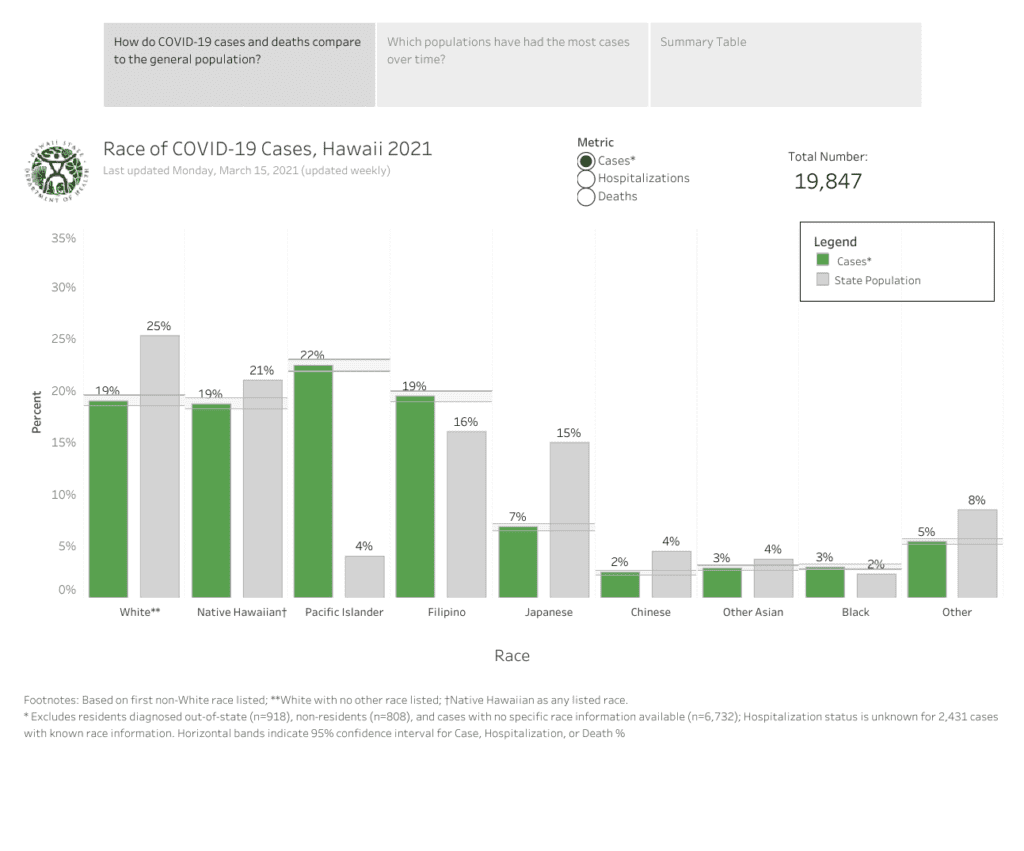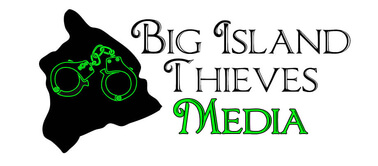HONOLULU – The Hawai‘i State Department of Health today outlined state- and community-based initiatives to address racial and ethnic disparities in COVID-19 infection and Hawaii’s vaccination efforts. DOH also released data illustrating the challenges in ensuring health equity in Hawaii’s COVID-19 response.
A new report, “COVID-19 in Hawai‘i: Addressing Health Equity in Diverse Populations,” details the racial and ethnic disparities in COVID-19 infections and deaths in the state of Hawai‘i, documents the actions taken to reduce transmission across the state, and provides recommendations based on lessons learned from the COVID-19 response.
At 12:00 p.m. today, DOH will also post preliminary data on vaccine administration by race at this link. The data found that while vaccine uptake is higher than originally projected among diverse communities, outreach efforts to Native Hawaiian, Pacific Islander, and other communities must continue. It also found that Phase 1a and 1b prioritization guidelines included a lower percentage of Native Hawaiian and Pacific Islander individuals than those of Asian and Caucasian ethnicities.
“We strongly value health equity for all people in Hawai‘i,” Dr. Sarah Kemble, Acting State Epidemiologist said. “While the Department’s health equity report and vaccine administration data is new, the health disparities it reveals in disproportionately impacted communities are long-standing. This data emphasizes the importance of our diverse coalition of partners who are targeting outreach to these communities. All of us will continue to work together to ensure that Hawaii’s response to the pandemic is equitable.”
Vaccine data categorized by race will be updated every weekday. This data is currently limited due to the federal vaccine registration system, which provides a fixed number of race reporting fields. DOH is taking action to improve data collection to disaggregate this data in the future.
These outreach efforts build on DOH’s work to address health equity, which the Department has emphasized throughout the pandemic. A group of diverse community partners and DOH are leveraging federal and state resources to expand outreach into these communities. DOH has taken the following actions:
- Collaborating with and funding for community-based organizations that have native language speakers to provide outreach within the Native Hawaiian, Pacific Islander, and Filipino (NHPIF) speaking populations
- Translating vaccination guidance, consent, and public education materials in up to 16 languages
- Training community health workers from the NHPIF communities to be ready for state vaccination implementation
- Building relationships with leaders and representatives of Pacific Islander faith communities and providing virtual town hall meetings and answering questions
- Providing online vaccine fact sheets and screening questions in more than 16 languages and materials are regularly updated
- Providing public health representation in NHPIF and senior (kūpuna) organized community-based virtual townhall meetings on panel discussions and forums
- Prioritizing support for federally qualified health care centers (FQHCs) to prepare for vaccine administration





